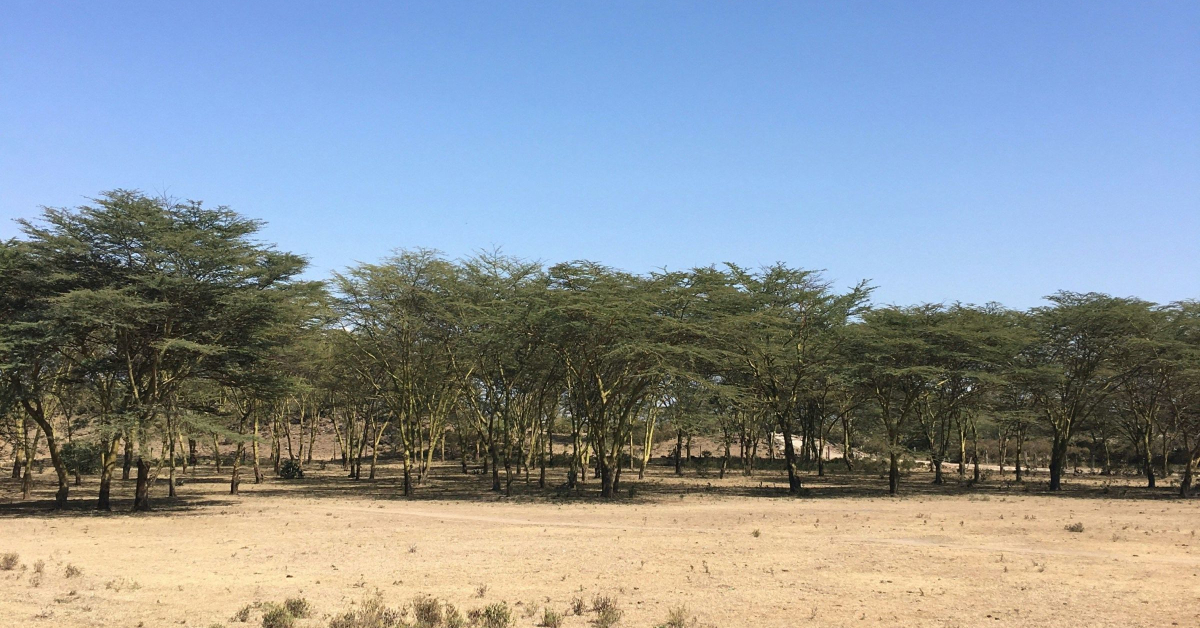The Ultimate Guide to Land Banking in Kenya: Opportunities, Risks, and How to Succeed
Land banking in Kenya presents a unique opportunity for investors looking to capitalize on the country’s rapid urbanization and infrastructure development. By purchasing land in strategic locations, investors can enjoy significant appreciation over time. This comprehensive guide explores the ins and outs of land banking, from its benefits and risks to successful strategies for investment.
1. Introduction to Land Banking in Kenya
Land banking is an investment strategy that involves purchasing land with the expectation that it will appreciate over time due to future development. In Kenya, this concept has gained traction among both local and international investors due to the country’s rapid urbanization, infrastructural projects, and increasing demand for real estate. Investors buy land in areas that are poised for future development, such as along major highways, near new cities like Konza Technopolis, or in suburban areas close to Nairobi.
Kenya’s real estate market is experiencing a boom, fueled by both population growth and government initiatives such as Vision 2030, which aims to transform Kenya into a newly industrialized middle-income country. Land banking is particularly appealing because it allows investors to secure prime real estate at relatively low prices, with the potential for significant appreciation over time. Additionally, it requires less immediate capital compared to building properties, making it accessible to a wider range of investors.
Why Now is the Best Time for Land Banking in Kenya
Kenya’s ongoing infrastructure developments, including the Standard Gauge Railway (SGR) and major road expansions like the Nairobi-Mombasa highway, are opening up previously remote areas to development. For instance, areas that were once considered too far from Nairobi for daily commuting, such as Isinya and Kajiado, are now hotbeds for future real estate development. These projects not only improve access but also increase the attractiveness of land banking as a long-term investment.
2. The Concept of Land Banking
At its core, land banking is a form of speculative investment, where the investor buys undeveloped land and holds onto it until it appreciates in value. The key to successful land banking lies in identifying areas that are expected to grow due to economic, commercial, or infrastructural development.
In Kenya, this strategy has been employed for decades, particularly in peri-urban areas around Nairobi, where land values have skyrocketed as the city expands. For example, investors who purchased land in Kitengela or Athi River years ago have seen its value multiply due to new developments like factories, housing projects, and infrastructure improvements.
How Land Banking Differs from Other Real Estate Investments
Unlike buying built properties (such as houses or commercial buildings), land banking involves a much lower upfront cost, making it a viable option for investors with smaller budgets. Moreover, land doesn’t depreciate or suffer from wear and tear, which reduces maintenance costs significantly. However, the trade-off is that land banking requires patience. Unlike rental properties that can generate immediate cash flow, land can take years or even decades to reach its full value potential.
Another distinguishing feature is the lower risk of tenant or management issues, which can be a burden for property owners. With land banking, there are no tenants to deal with or structures to maintain. It’s a relatively passive investment, ideal for those who prefer a hands-off approach.
3. Advantages of Land Banking
There are several reasons why land banking is an attractive investment option, especially in a country like Kenya where the potential for real estate development is enormous. Let’s explore the key advantages.

a. Low Maintenance Costs
One of the biggest benefits of land banking is the minimal upkeep required. Unlike owning rental properties or commercial buildings, which come with maintenance costs, repairs, and tenant management, raw land needs almost no maintenance. The only regular expenses are property taxes, which are generally lower for vacant land compared to developed properties.
b. High Potential for Appreciation
Land banking capitalizes on future appreciation. When you buy land in a location that is expected to develop—perhaps due to upcoming infrastructure projects, new industries, or population growth—you can expect its value to increase. For example, land near the newly constructed Nairobi-Mombasa highway has seen its value rise rapidly, making early investors significant profits.
c. Diversification
For investors looking to diversify their portfolios, land banking provides a great opportunity. Real estate, in general, is a solid way to diversify away from more volatile investments like stocks. Land, in particular, offers stability since it tends to appreciate over time and is not subject to depreciation like buildings. Additionally, land banking can act as a hedge against inflation, as the value of land typically rises with inflation.
d. Passive Income Opportunities
In addition to appreciation, there are ways to generate passive income from banked land. For instance, land can be leased for farming or other agricultural activities, especially in areas outside of urban centers. You could also lease the land for temporary uses, such as parking lots, mobile infrastructure, or even renewable energy projects like solar farms. These opportunities allow investors to earn money while waiting for the land to appreciate.
4. Risks and Challenges of Land Banking
Like any investment strategy, land banking is not without its risks. Investors need to be aware of the potential downsides before committing significant capital to this approach.
a. Illiquidity
One of the primary challenges of land banking is that land is not a liquid asset. This means it can take time to sell, especially if the area hasn’t developed as anticipated. While property markets in Kenya are generally strong, some areas may not experience growth as quickly as expected. Investors should be prepared to hold onto their land for several years, possibly even decades, before they can realize significant returns.
b. Environmental and Zoning Issues
Another risk is related to environmental and zoning regulations. In some cases, land may be located in areas prone to flooding, landslides, or other environmental risks, which can affect its future use. Additionally, zoning laws may restrict how the land can be used. For example, some land might be zoned strictly for agricultural purposes, making it difficult to convert into residential or commercial property without going through lengthy and expensive rezoning processes.
c. Market Fluctuations
Like all real estate investments, land banking is subject to market fluctuations. External factors such as economic recessions, changes in government policies, or shifts in demand can affect land prices. Investors should remain informed about market trends and government plans that could impact the value of their land holdings.
d. Financing Difficulties
Obtaining financing for undeveloped land is often more challenging than securing a loan for developed real estate. Banks view raw land as a riskier investment since it doesn’t generate income immediately and can take years to appreciate. As a result, interest rates on land loans may be higher, and the loan-to-value ratios may be lower. Investors should be prepared to provide a higher down payment or seek alternative financing options, such as private lenders or partnerships.
5. Popular Locations for Land Banking in Kenya
To make land banking a profitable venture, choosing the right location is crucial. Some regions in Kenya are particularly ripe for land banking due to ongoing infrastructure projects, proximity to major cities, or government plans for development. Below are some of the most promising locations for land banking in Kenya.
a. Konza Technopolis (Silicon Savannah)
Konza Technopolis is often referred to as Kenya’s “Silicon Savannah,” and it’s one of the most ambitious urban development projects in Africa. Located about 60 kilometers from Nairobi, Konza is set to become a hub for technology companies, universities, and residential developments. Land in the surrounding areas has been increasing in value as investors speculate on the future success of the technopolis. Buying land near Konza is seen as a long-term investment with high potential returns once the city is fully operational.

b. Machakos
Machakos, located just east of Nairobi, has experienced a surge in land prices over the past few years. This is due to its proximity to Nairobi and improved infrastructure, including the Nairobi-Mombasa highway. Investors have been flocking to Machakos to buy land, especially in areas that are expected to benefit from future development projects such as new residential estates, shopping malls, and industrial parks.
c. Nanyuki
Nanyuki is a popular destination for both tourists and investors. Its proximity to Mount Kenya and wildlife conservancies has made it a prime location for eco-tourism projects and vacation homes. In recent years, land prices in Nanyuki have risen as more investors look to capitalize on its natural beauty and the growing demand for recreational real estate. Additionally, the development of better roads connecting Nanyuki to Nairobi has made the area more accessible, further boosting its appeal to investors.
6. Legal and Regulatory Framework
Land banking in Kenya requires a solid understanding of the legal and regulatory environment. Land ownership and acquisition are governed by a set of laws designed to protect both buyers and sellers, but navigating these laws can be challenging for first-time investors.
a. Land Titles and Due Diligence
Before purchasing land, it is essential to verify that the seller holds a legitimate title deed. In Kenya, there have been numerous cases of land fraud, where investors purchased land only to find out that the title was not genuine. Conducting due diligence by working with a lawyer or a reputable land surveyor is crucial to avoid these issues. Ensure that the title deed is registered with the Ministry of Lands and that there are no disputes or claims on the land.
b. Zoning Laws
Zoning laws dictate how land can be used, and they vary from region to region. For example, land in agricultural zones may not be eligible for residential or commercial development without proper rezoning approval. Investors should familiarize themselves with the zoning regulations in the area where they intend to buy land. Changing a land’s zoning designation can be a lengthy and expensive process, so it’s important to factor this into your investment decision.
Before making any land purchase, it’s essential to understand the legal framework governing land transactions in Kenya. For a detailed overview, check out our guide on How to Buy Land in Kenya.
7. Case Studies of Successful Land Banking in Kenya
Learning from real-life examples can provide valuable insights into the potential of land banking in Kenya. Below are two case studies of investors who successfully banked land and reaped significant returns.
a. Kitengela: From Pastoral Land to Urban Hub
One of the most well-known success stories of land banking in Kenya involves the town of Kitengela. Located just south of Nairobi, Kitengela was once a small pastoral community. However, as Nairobi expanded, developers and investors began purchasing large tracts of land in Kitengela, anticipating future growth. Over the past two decades, Kitengela has transformed into a bustling urban center with residential estates, shopping centers, and schools. Investors who purchased land in the early 2000s have seen its value increase tenfold, making land banking in Kitengela one of the most lucrative real estate ventures in recent memory.
b. Konza Technopolis: Betting on the Future
Another example of successful land banking can be found in the area surrounding Konza Technopolis. When the government first announced plans to build a smart city in the region, investors flocked to buy land in nearby areas, hoping to capitalize on the future development. While Konza is still in the early stages of construction, land prices have already begun to rise. Those who invested in the area early are expected to see significant returns once the city is fully operational.
8. How to Start Land Banking in Kenya
If you’re interested in getting started with land banking in Kenya, follow these steps to ensure that your investment is sound and profitable.
a. Research Potential Locations
Start by researching areas that are poised for future growth. Look for regions where the government is investing in infrastructure or where new industries are emerging. Pay attention to demographic trends and population growth, as these are key indicators of future demand for real estate.
b. Conduct Due Diligence
Before making any land purchase, conduct thorough due diligence. Verify the legitimacy of the title deed, ensure that there are no disputes or claims on the land, and check the zoning regulations. Work with a lawyer or a reputable real estate agent to navigate the legal aspects of the transaction.
c. Develop a Long-Term Investment Strategy
Land banking is a long-term investment strategy, so it’s important to have a clear plan for holding the land until it appreciates. Consider how long you’re willing to wait for the land to increase in value, and be prepared for the possibility that it may take several years before you see significant returns. Additionally, think about potential passive income opportunities while you wait, such as leasing the land for farming or temporary uses.
Conclusion: The Future of Land Banking in Kenya
Land banking offers immense potential for investors looking to capitalize on Kenya’s growing real estate market. With the country’s rapid urbanization, infrastructure projects, and government support for real estate development, the opportunities for land banking are plentiful. However, like any investment, land banking requires careful planning, thorough research, and patience. By choosing the right location, conducting due diligence, and adopting a long-term investment strategy, investors can reap substantial rewards from land banking in Kenya.




